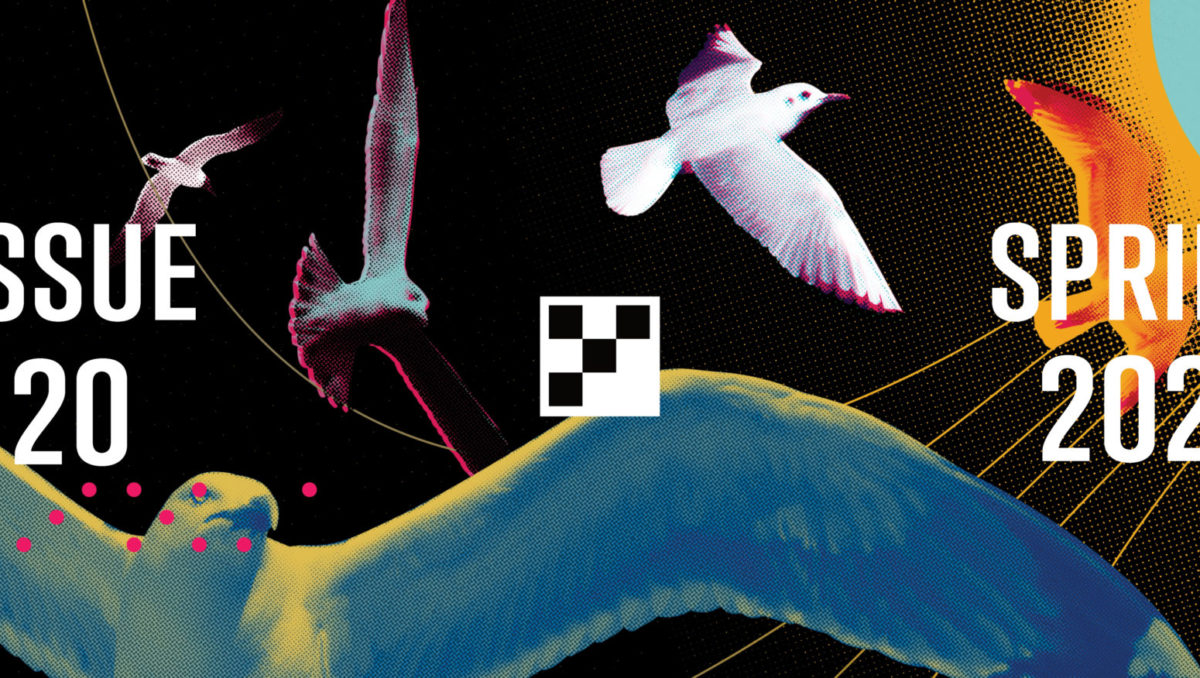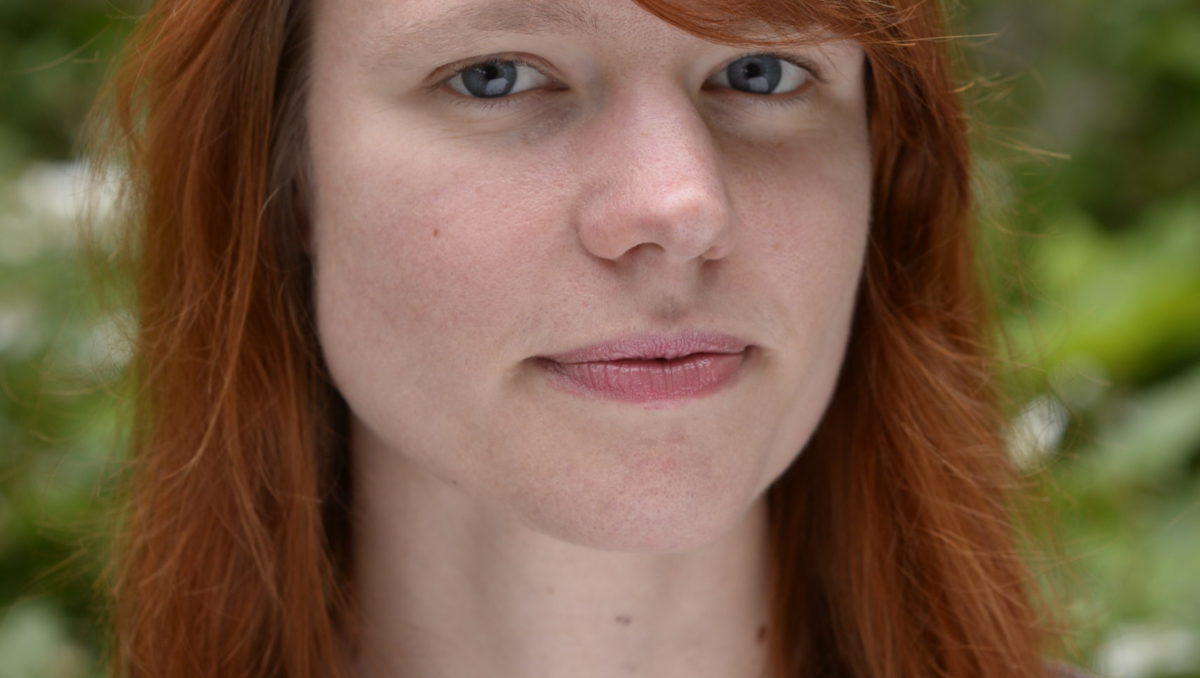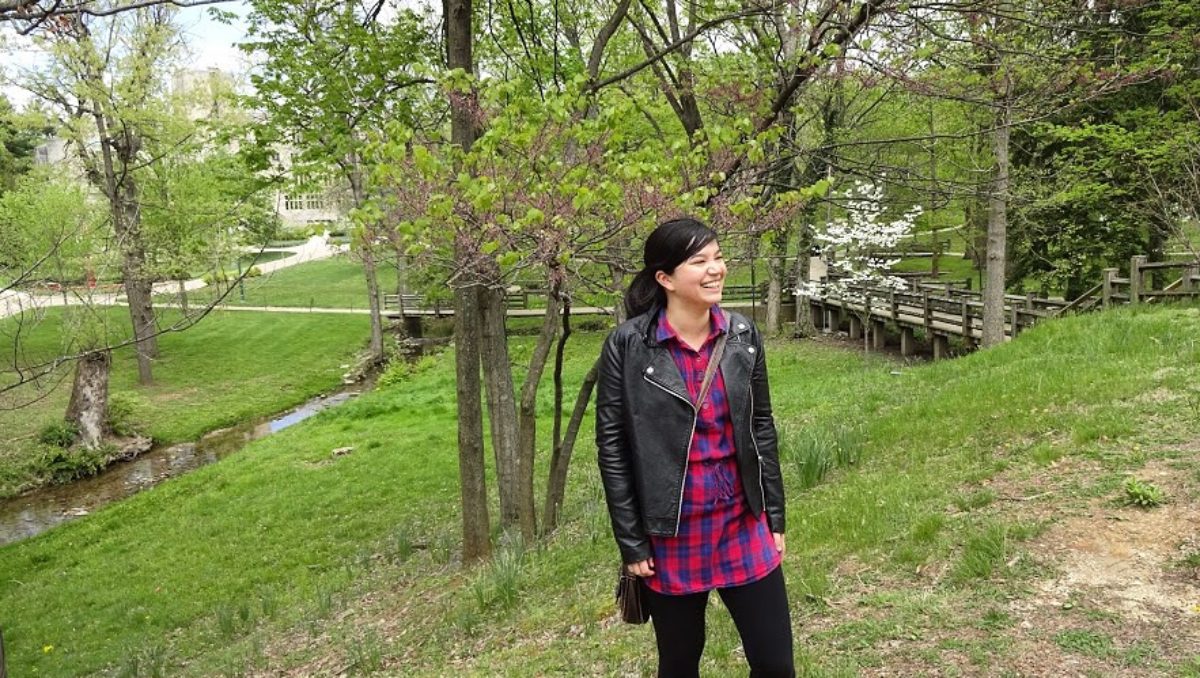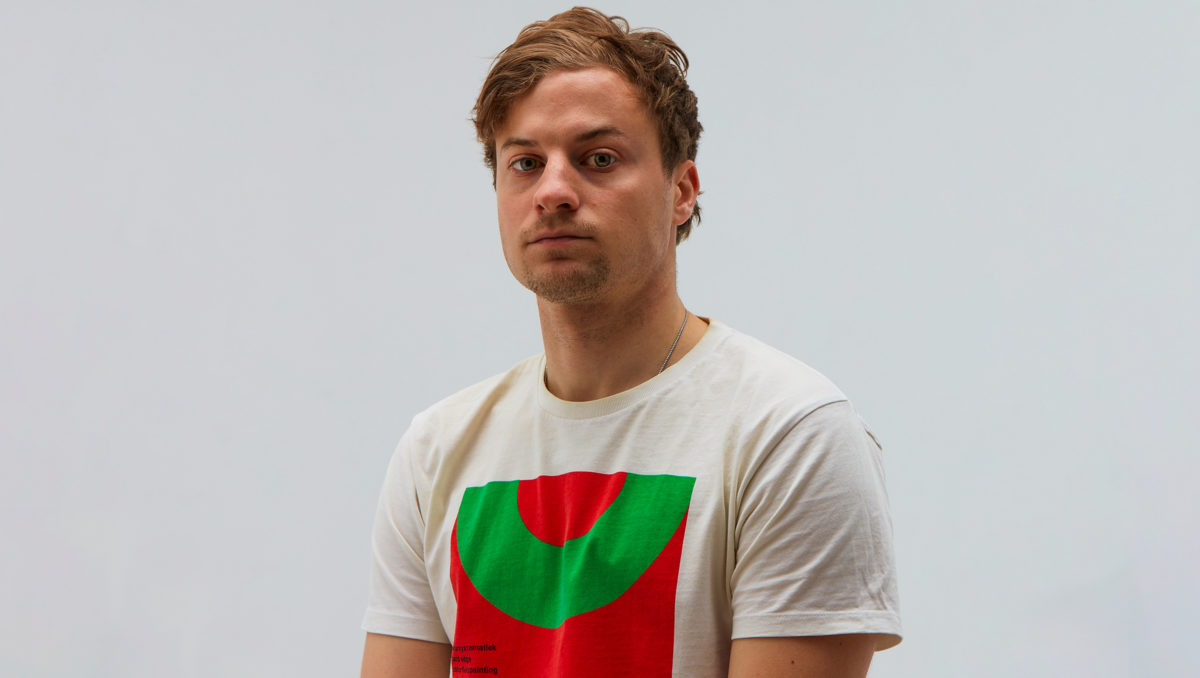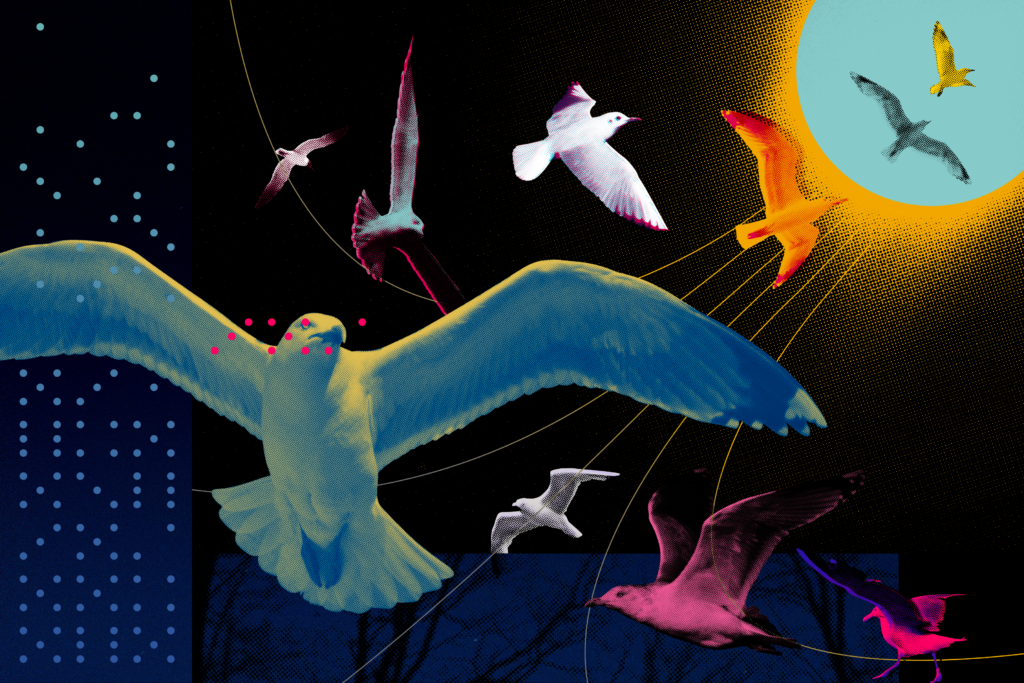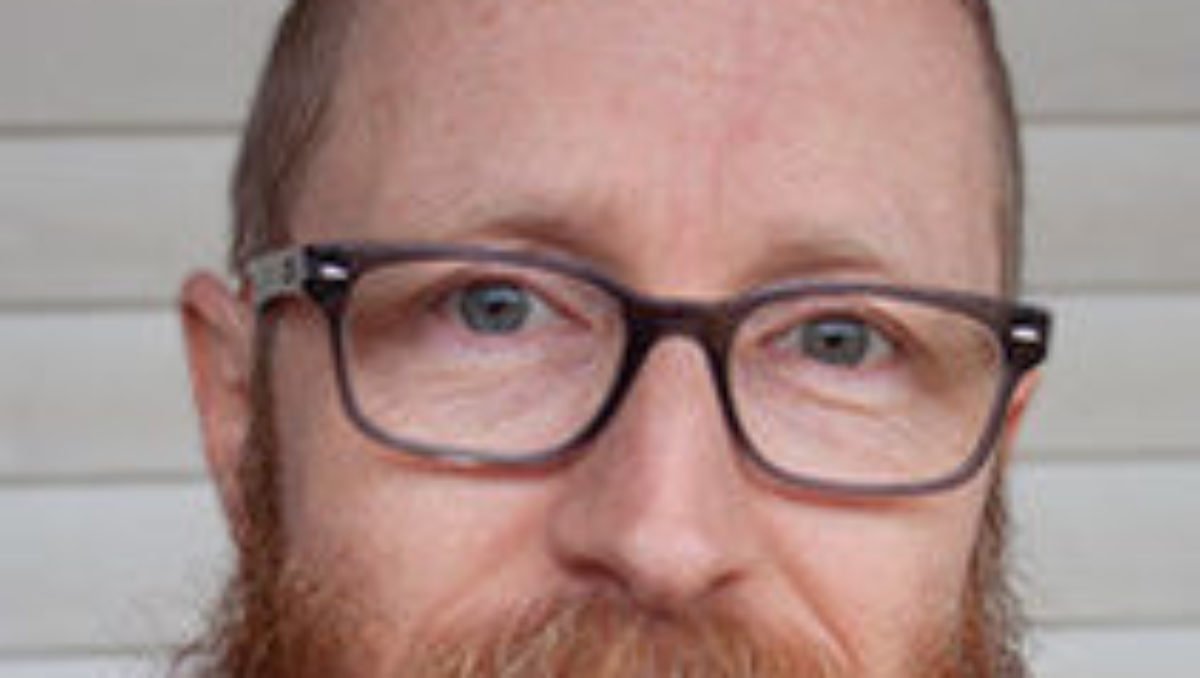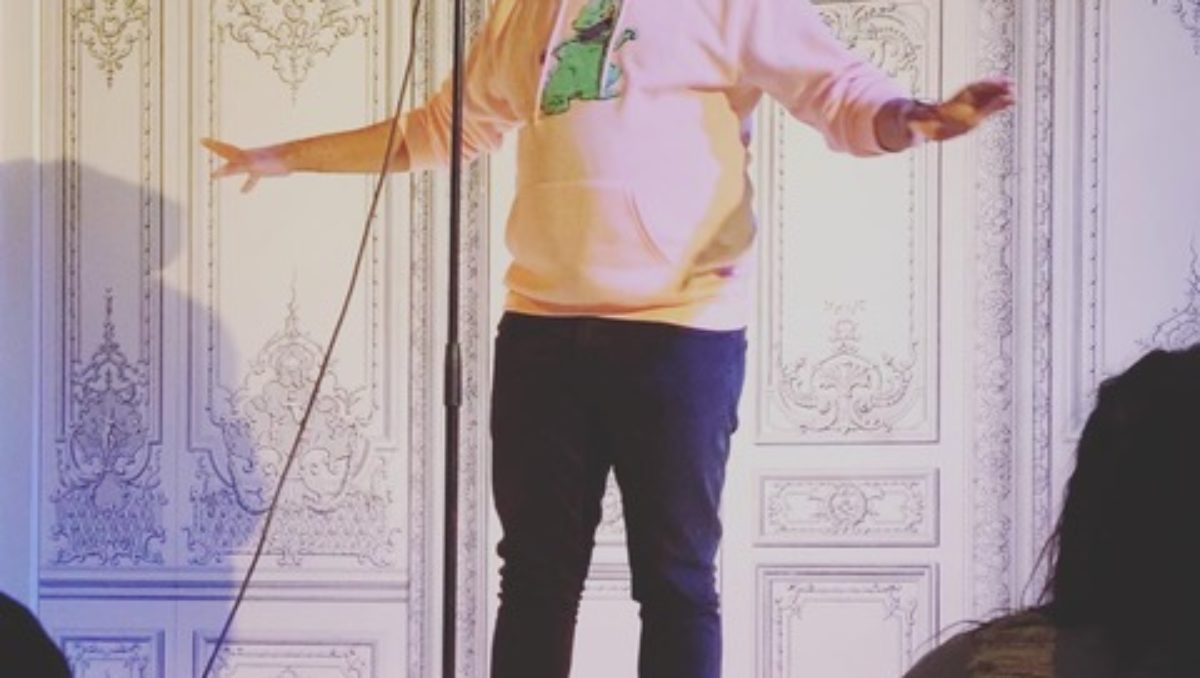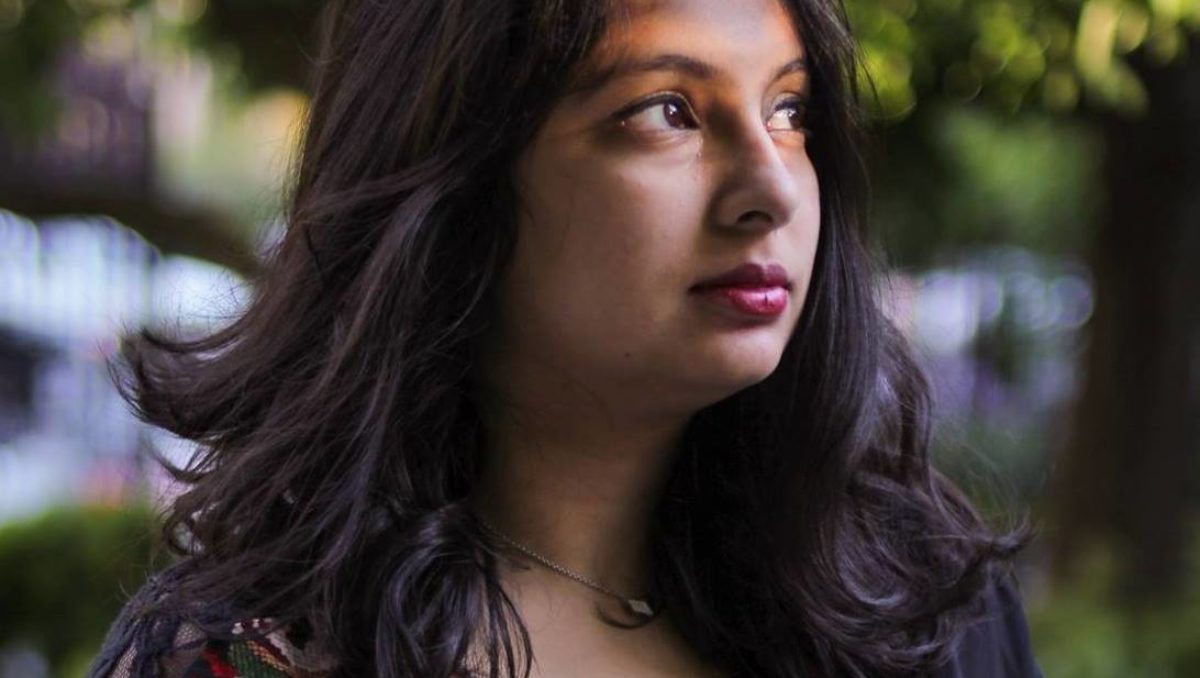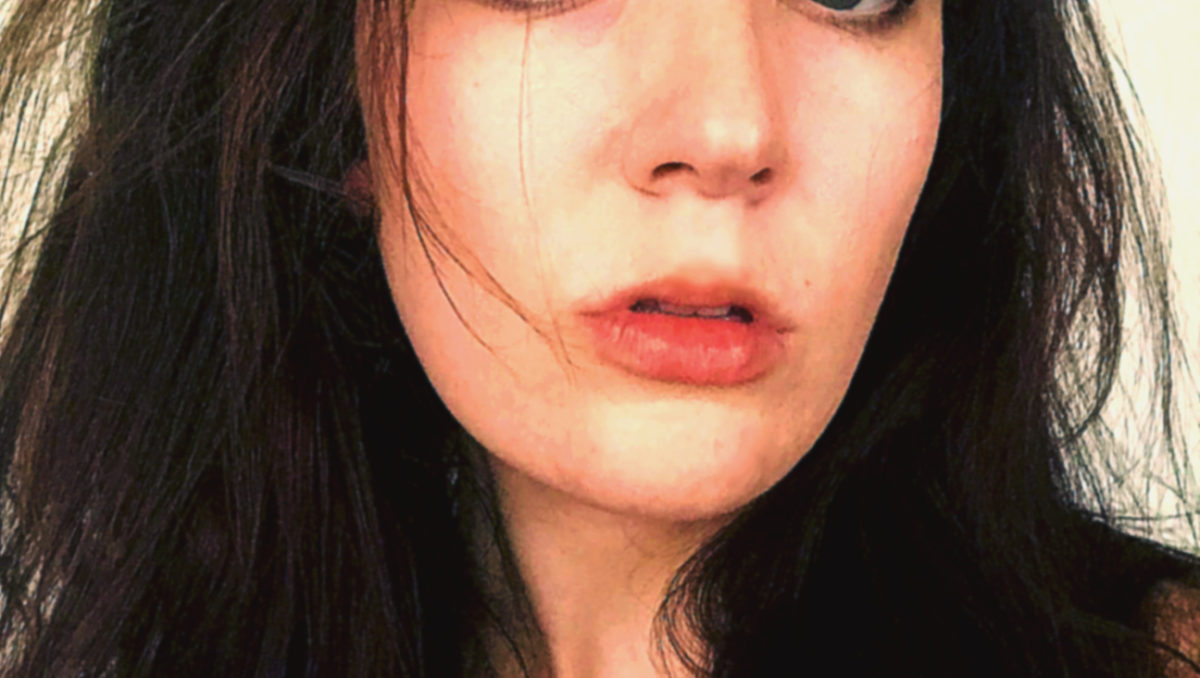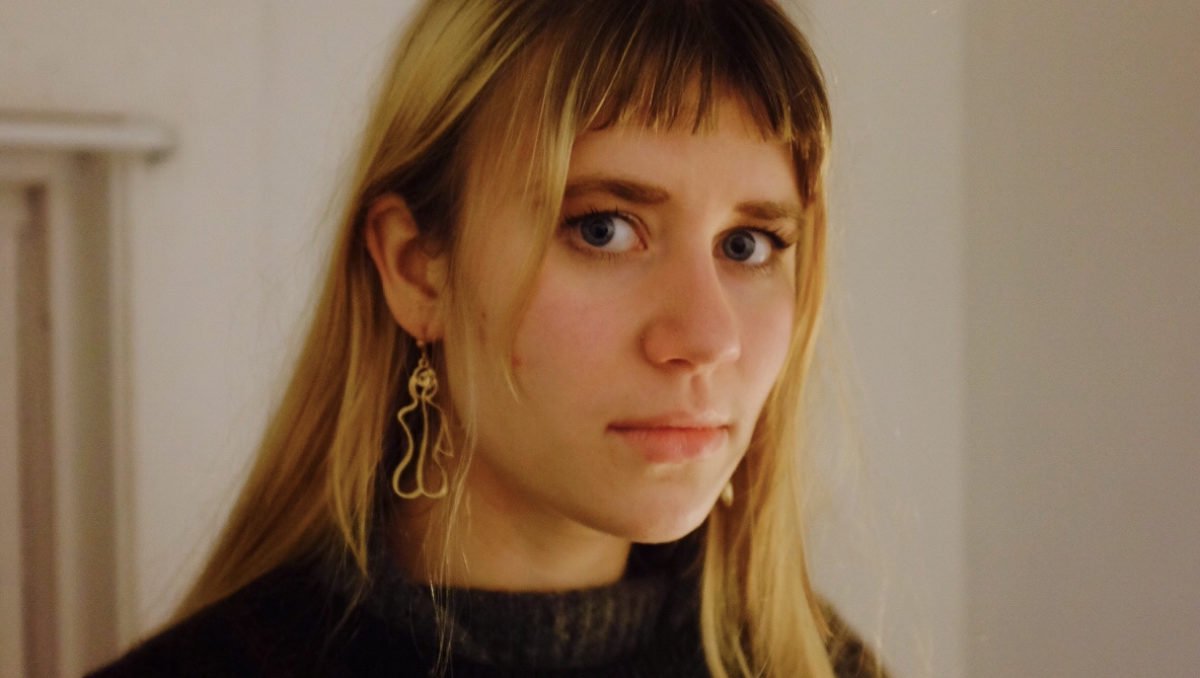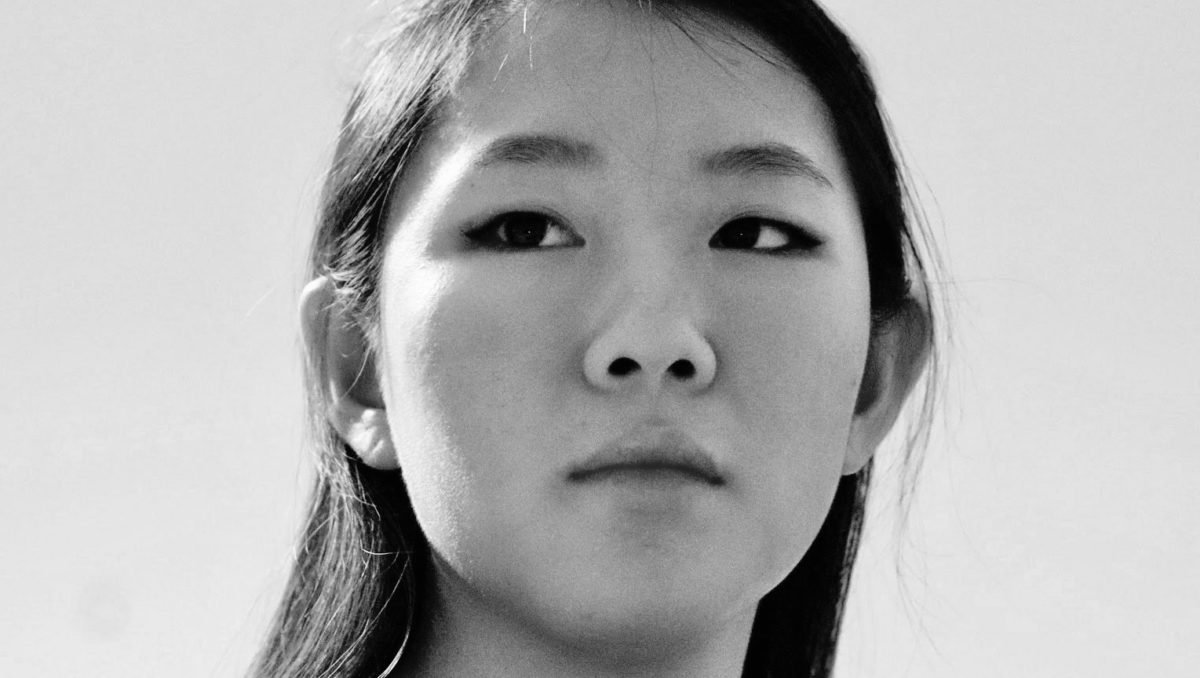ISSUE 20
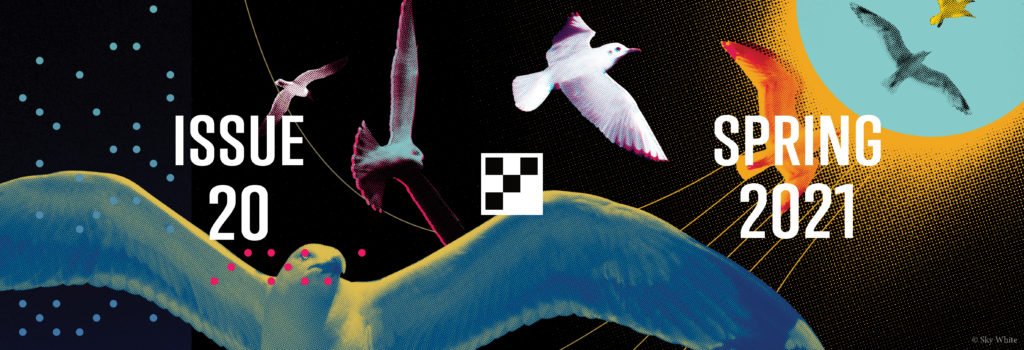
ISSUE 20POETRY SING, O BARREN ONE, WHO DID NOT BEAR A CHILD by Jessica Jacobs THE BOY IS by Junious Ward GUILT by Pablo Piñero Stillmann THE BEETLES by Dan Albergotti BATAAN DEATH MARCH AS TAROT CARD: NINUNO NG RATTAN by Hari Alluri FANTASY by Grace Q. Song UNTITLED (OIL ON PAPER) by Marie Ungar OK IT’S TIME TO LISTEN UP ALYSSANDRA by Alyssandra Tobin SHOWERHEAD by Annesha Mitha THEY THREATEN MY LIFE by Ron Riekki PORTRAIT OF LIABILITIES by Kelli Russell Agodon TWO POEMS by Jason B. Crawford ALL SAID & DONE by C.S. Carrier
FICTION SUCKER by Maggie Su MOUSE HOUSE by Amelia Brown
|
|
- Published in All Issues, Issue 20, Issues
MOUSE HOUSE by Amelia Brown

Mouse House
I am visiting my boyfriend’s mother up in Maine, two hours north of our cluttered apartment in Boston. Really, we both are visiting the whole thing: the family, the place. But in another sense, if I look close into a cobwebbed corner of my mind—the one filled with mirrors and hats—really I am visiting my boyfriend’s mother.
In her city, in Portland, there are beautiful houses and there are ugly houses. Susan’s house is beautiful, and I told her so the first time I visited, back in the winter. But I started to get worried about making it sound as if I knew beauty from personal comparison, about getting the compliment wrong. (Do all the houses here have heated floors?) So this time around, I don’t compliment Susan’s house. This time I tell her how much I love her food. I ask her flattering questions: How did she do this? Where did she get that fruit? Is there complicated paraphernalia involved? But what she wants to know is:
“Do you hear that squeaking?”
“Well, yes, as a matter of fact, I do. I thought it was the dryer.”
“The clothes dryer?” she asks.
“Yes, but what is it actually?”
“The mouse,” she tells me.
*
The mouse has been living in her house for so long, she says. For at least a week or maybe longer, maybe two. I marveled, not for the first time, at the efficiency of this beautiful home, at the constant vigilance of this woman for whom two weeks was an eternity of procrastination.
It brought to mind a car of my childhood, the broken-down Mazda that we never got around to removing from the weeds in the backyard where we left it when that last long-neglected repair decided to give out. The Spider Car, named for its new owners, for the day, three years after its abandonment, when my sister opened its door to check in and met only dense webs and heavy, spinning bodies.
“But something has to be done about this mouse,” Susan is saying, “and soon.” I watch her sow the corners of the house with cotton soaked in peppermint oil—the mortal enemy, she tells me, of the mouse nose.
“It terrifies them,” she says. “Too clean. It offends them.”
But this move with the peppermint is only a shot across the bow. Later, in the afternoon as we are sipping tea she has my boyfriend set up one of those traditional mousetraps with the spring and the piece of cheese.
“Put it right there in the corner, Eddie. Right behind the dryer where we heard the squeaking.”
She must have seen me wince, though I thought I’d kept it to myself, because she asks me, “Haven’t you ever seen a trap set before?”
“Of course!” I tell her, but she’s not having it, so I tell her that in my own mother’s house, in the house where I grew up, we would catch things under cups and take them outside. I try to explain that this isn’t based on principles, that none of us is vegetarian or Jain or anything. We just feel guilty.
“Guilty?” she asks. I look over at Eddie, nudging the trap into place with his foot. He looks at me and smiles but also scrunches his eyes in confusion and therefore agreement.
I try to explain that we never discussed the practice, but if I had to put a name to it I’d say we just felt guilty taking initiative, where initiative meant death, when there were so many other things around the house we ignored. But I can tell I’m not doing a great job of saying any of this. So I try again. I tell her that obviously she shouldn’t feel guilty, that her mousetraps are a natural and fair extension of her efficiency, of her home, but I can feel my voice rising into squeaky heights, nasal, pinched, too careful, and so I ask her where in Portland she came by this tea.
The whole mouse issue is forgotten for the rest of the evening, but the next morning, at breakfast, Susan has something to show me. It is a box trap. The mouse is peering out and quivering with that mouse quiver that is either fearful or just a symptom of the way mice breathe.
“So you don’t feel guilty,” she tells me.
I am not sure of what to say except that I’m sorry, that I’m embarrassed she felt like she had to do this for me in her own home. “Thank you,” I say.
“Ok, all right. Let’s let it outside already,” Eddie says.
“Oh well, if we let it out right outside the house, don’t you think it would come back in?” Susan asks.
Eddie remembers that there’s a screen-topped terrarium in the attic and goes to fetch it. I come too, to help him look and to not be left alone.
“She bought me this terrarium when I was a kid,” Eddie says. “Then hamster after hamster after hamster.” He looks behind a box of sweaters.
“Cute,” I say, “classic pet.”
“I wanted a boa,” Eddie says.
We find the terrarium at last, on top of an old dresser. Eddie lines it with a fluffy pink turtleneck from the sweater box, folded into a tight mound.
“Looks cozy!” Susan says, when we bring everything down. “If a little thrown together. We’ll just put it out in the yard, off to the side.”
She takes a crunching corner of toast and says, “Though I wonder what Denise and Jem will think.” Denise and Jem are the next-door neighbors, Susan explains to me. “Eddie? What do you think?” she asks, but he has walked out of the room.
*
That afternoon Eddie and I go to look around the city.
“I just need out for a little while,” he tells Susan.
We sample fudge and taffy at three candy shops and end up at a garage that sells nothing but hand-carved lobsters. In the back of this place, past shelves of painted carapaces, there is a fenced-off workshop where everything is covered in sawdust. Despite the fact that this space is on display, the tools and half-finished lobsters lie scattered in random heaps. The messiness is not in the least bit quaint. I feel close to home for the first time all week.
I say, “What a wreck.”
Eddie puts his arm around my shoulder and crunches me gently. He speaks over the top of my head saying, “I love it.”
“All the sawdust?” I ask.
“Chaos,” he says.
*
When we come back to the house, the terrarium in the yard has been replaced with a large dollhouse. I can see the mouse scrambling up and down the doll staircases. Peering through the mesh that has been stapled across windows and doors, I see a little pink cushioned sofa that the mouse has torn up to build a foam bed in the fireplace.
Susan waves at us from the porch, a teacup in her other hand. “Much nicer, isn’t it? I took it out of storage! Your grandmother’s.”
“I forgot about this.” Eddie sounds wary. “Didn’t we used to play with it?”
“I’d been meaning to fix it up,” Susan says, tapping her lip, “for all the little kiddos to come.” She winks at me, two little coils of steam coming up from the tea to lick around her eyes.
*
Eddie shakes me awake from a dream that night. “You were thrashing around,” he says.
“They were giving me a tour of the car,” I tell him.
“Who was? Which car?” His fingers on my hip are making little Xs.
“They’d made up a guest web for me.”
“Sounds sticky,” he says.
“It was soft,” I say. “It was warm.”
He’s silent for a little while. He’s weighing that, I think. Weighing our own warm rooms back in Boston, the space we’ve abandoned for this short trip. He must be imagining what might come to fill it. In fact, he’s fallen back asleep.
*
Eddie and I spend the weekend with his friend Amy in her apartment one town over. We drink and walk along rocky beaches and sleep on a velvet sectional.
At one point, Eddie brings up the mouse and his mother’s fussing. Amy and he recollect together a time that Susan helped them with a high school English project. She spent a week sewing costumes for their presentation on Shakespeare. She rewrote their introduction in iambic pentameter.
“She did this unasked,” Eddie says. “We did the research, but none of our work was there, not on the surface.”
“We did get As though,” Amy says. We all sit for a while, sipping from cans.
“It’s funny,” Amy says, “but I don’t think I’ve ever had a mouse in my house.”
“Never?” I ask.
“Not once,” she tells us. “I don’t think I can presume to know how I would deal with a mouse.”
“Tell her about the Mazda with the spiders,” Eddie says, touching my hand as I take a drink. I think of Amy’s pretty couch. I look at her subtly manicured nails. I don’t want to tell Amy about the Spider Car, but I do.
“Well, a Mazda I’ve had,” she says when I finish, “and I’m pretty sure that’s not how to deal with a Mazda.”
*
Susan plans a day for us—we will tour the open houses a couple of blocks away. More beautiful homes. Susan looks directly into my eyes and tells me tales of their decorated parlors and underground entertainment systems. She is looking at me in expectation.
“These biscuits!” I try to will tears to my eyes, but all I can think of are the neighbors we’d have if we lived here. The neighbors in a long line, bringing me housewarming gifts of teas and soaps and mousetraps. “Did you cut in with knives? So flaky!” The left corner of her smile drops a centimeter, and I feel the air go with it.
“Thank you. So what do you think of a couple tours?”
“Are you serious?” Eddie asks. He stands beside me, runs his fingers up my spine. The air around me comes sweeping back. “We’ll come if you’ve setup tours, but look at us. We’re city people. Messy apartment people! If it’s up to me, I’ll never have a yard.”
“But that’s all I’m asking!” Susan says, turning to the sink. Eddie rolls his eyes. “Just come and see! You’ve got nothing else going on, and they’re so pretty. One is right next to the kindergarten.” She smiles at me. “Now let’s take a biscuit to that mouse.”
*
It’s a relief to step outside, but as soon as we do, I know something has changed. I notice that the dollhouse is bigger, and Eddie asks Susan if she’s repainted it. He’s right. Everywhere I look, I see more embellishments. Here the shingles have been repainted in shades of grey and navy, there the trim around the roof has taken on little spiraling details. A yolky orange paint stroke has been dolloped at the point where the eaves meet. But there, too, on the inside: Susan has added scraps of wallpaper, decorative paintings, and tiny photographic prints. A shiny black plastic rectangle among these—a television.
As I map the changes, I see that there are now multiple mice in the house. One of them bumps up against a photograph in the living room that I recognize as a very small print of Eddie and his old dog. A larger version hangs above Susan’s couch. I turn away to look at the big house behind me and understand that Susan has made the dollhouse into a copy of her home.
Susan nudges Eddie and looks in one of the windows. “Oooh!” she coos. “She must have invited her family over!”
Eddie squints down into the little windows at a pair of mouselings staring back out at him.
A powerlessness comes over me. “It’s all so perfect—that wallpaper?” I clutch at my neck in reverence. I am feel stuck in the craft paste Susan has slathered on the walls, in this tiny space she’s filled so completely with herself.
“I cut those patterns out from a couple magazines I had lying around.” Susan tells us where she’d found the cloth to match, the luck of stumbling on some unused paint in the basement. Most of this is directed at me. Eddie doesn’t acknowledge her at all, and eventually, Susan goes back in to get lunch ready.
Something twitches on Eddie’s shoulder.
“There’s a spider,” I tell him.
He brushes it onto the grass and the spider begins to crawl away, moving long delicate legs without hesitation, though the ground underneath it has changed completely. Eddie stomps it.
“It’s so impressive,” I say quietly, though we are alone.
Eddie kneels to look at the two mice in our guest room’s doppelgänger as they chew on a miniature pillow. I think to myself that Susan has made this so carefully, all for us. All of this.
Eddie turns back to me and gets up off his knees, brushing bits of dirt and grass with one hand. With the other, he pulls something from his pocket.
“What’s that?” I ask.
Instead of answering, he reaches out and places it in my hand, sweeping his other fingers through my hair. I look into my palm. It’s a book of matches.
I look back at him.
Eddie’s eyes are a perfect, clairvoyant grey, and in them I see myself on his mother’s lawn. All around me, springs are pulled taut, deadly and trembling.
- Published in Issue 20
SUCKER by Maggie Su
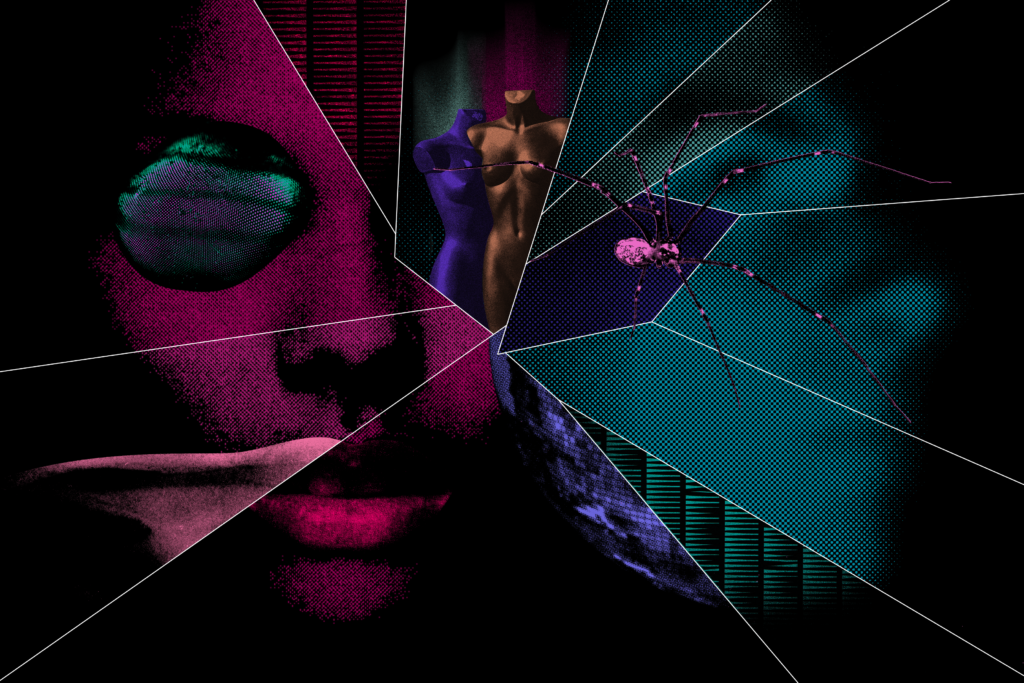
“Sucker” by Sky White
A few hours before J Xu turns into an insect, she stands in her parents’ bedroom on the muddy brown carpet that so artfully camouflages cat vomit and examines herself in their full-length mirror. It’s the back-to-school dance at Central High, and J’s wearing a spaghetti strap black dress that hits her mid-thigh, black tights to hide the mosquito bites on her legs, and black ballet flats.
“You’re very covered up,” her mom says from the bed. “Don’t hide your battle scars. It’s not your fault your blood is too sweet.”
J was five when she got her first mosquito bite camping in the flat Illinois woods thirty minutes outside of Champaign. It was supposed to be a couples’ trip, but J cried until they gave in, packed a duffle full of Cheez-Its and Gatorade, and strapped her in the minivan.
“Happy now?” her mother asked and little J in the backseat, her eyes still raw from crying, gave a rare smile. Yes, happy.
That night J slept in her parents’ tent with a stuffed Dalmatian tucked tightly under her arm. When J woke in the middle of the night, everything was black. The type of black where your brain imagines white lines just to give you something to focus on so you don’t go crazy. J sat up in her sleeping bag and felt her face. Nose, ears, lips were in their proper places, but her eyes were foreign. Two ping-pong sized lumps had replaced them.
She woke screaming and clawing at her mosquito-bitten eyes. Her dad pinned her arms to her side and plugged her nose to keep her from scratching herself blind.
Now she watches a new episode of Jeopardy! on the forty-inch TV mounted to the wall directly opposite her parents’ headboard. J’s dad sits on his falling-apart blue pleather chair, his eyes glued to Alex Trebek who’s walking across the stage to interview the contestants. He starts with Gretchen, a retired elementary school teacher from Wichita, Kansas, and asks her what the secret ingredient in her famous apple cinnamon muffins is.
“Love,” Gretchen replies with a sweet smile. Both J’s parents scoff.
“Don’t listen to Mom. It doesn’t matter what you look like,” her dad says, turning to J finally. “Just remember that small talk is a skill. Like accounting or botany.”
J might believe this if it were coming from someone else but her parents are losers like her—they are friends with no one but each other. They met the first day of orientation at University of Illinois when they both found the least occupied table in the dining hall, sat down, and took out books to read: her mom, Anna Karenina; her dad, a differential equations textbook. They married at twenty-three, got jobs in the college town after graduation, had a kid, and never left.
“What is The Addams Family?” J’s dad yells at the TV screen so loudly their fat grey cat jumps down from the open window. J scratches at the bites under her tights, leaves just as Double Jeopardy! starts.
*
At the dance, J stands in the shadows of the bleachers and watches the disco ball bounce white and blue light against the concrete with the urgency of an ambulance. In the middle of the gym floor, right below the maroon and white streamers that zig-zag through the rafters, is Mike Wilson. He’s dancing alone, his fingers fluorescent red with the dust of Flamin’ Hot Cheetos.
Mike lives on the same street as her, the one lined with black walnuts and bur oaks that change color without warning. A week before the dance, J salvaged Mike’s empty chocolate milk carton from the trash and placed it in her locker next to his forgotten Algebra homework. He’d only gotten six out of ten questions right.
He’s not the smartest boy in her class but J has studied his movements, the easy way he walks through the halls like a long-distance swimmer cutting through water. Mike doesn’t think too much. He knows when to hold the door open for someone and when to let go because the person is too far away and holding the door open would force them to run and catch it. Mike knows how to answer innocuous questions like, “What’s up?” and how to eat pizza and talk at the same time. When J looks at Mike, she sees an oasis. Not the desert kind, but the overpasses that stud I-74, the kind her dad drives by on the way to visit her grandparents in Chicago. Once she had to pee so bad that when the sign appeared on the horizon advertising restrooms and a Subway where every table was covered in sandwich crumbs, she cried. This must be what love feels like.
Over the summer, J got rid of the blunt-cut bangs that covered her face, started to pluck her eyebrows, and binge-watched Friends DVDs in the basement. She feels as prepared as she’ll ever be, certain that this is the best version of her current self.
By the end of the first song, most of the high schoolers are coupled up, with the girls cork-screwing their hips into the boys’ crotches. Mrs. Kay, the English teacher who can’t be older than twenty-five, stands on the perimeter looking horrified. A slow song comes on, some 80s ballad that J doesn’t recognize, and the girls either turn to face their dance partners or go outside to take sips from the flasks they’ve hidden under their dresses. Mike Wilson floats in the middle of the room.
J pushes off the bleachers and heads for him.
“You are hot stuff,” she whispers to herself.
When she reaches the first line of dancers, the edge of the gym floor, J’s hip starts buzzing. Ten feet from Mike, her mouth goes dry. Suddenly she’s thirsty. Thirstier than she’s ever been. This isn’t over, J promises Mike’s back, before she turns away and heads to the cafeteria.
In the kitchen area behind the blue plastic lunch tables, a few bored parents hand out packets of Skittles to a group of freshmen boys wearing hot pink button-ups and their dads’ ties. J’s third in line for the water fountain behind two senior boys who J has only heard of, never spoken to.
“She Snapchatted me under a fake number. Tricked me into telling her that I’d bang Jackie if I had the chance. How fucked up is that?” says Harper, the shorter one, who was very publicly dumped by Perrie Jacobs last week during AP Government.
“Fucked. You can’t trust anyone,” says Taylor, the taller one.
Harper bends down and gulps water from the fountain. Taylor looks back at J who’s pretending not to listen. She stares at a cafeteria sign to her left depicting the right and wrong ways for a person to wash their hands.
“Hey,” Taylor says to J. He moves his chewing gum to the left side of his mouth before smiling at her. “You’re Mr. Xu’s daughter right?”
Her dad is a computer engineer for the college, but he volunteers at Central High and occasionally pops up in the computer lab, never leaving before he’s talked to at least three kids.
J nods but adds, “I might have been adopted.”
“No shit?” says Taylor and J shrugs.
“I’m heading back out there,” Harper says, wiping water from his lips with the back of his hand.
“Catch you later, man,” Taylor says.
J doesn’t see Harper’s raised eyebrows because she’s too busy trying to avoid Taylor’s stare. Her eyes are trained on the white linoleum tiles. She knows something is happening, but she doesn’t know what.
“Hey,” Taylor says, forcing J to look up at him. “Come to the girl’s locker room with me for a second. I want to show you something.”
It would be easy for J to say no. Make up some excuse about an imagined friend who’s waiting for her in the gymnasium. A clingy girl named Marlene who hates oldies and flashing lights and gets upset when she doesn’t know exactly where J is. But by the time J’s thoroughly conceived of Marlene’s neurotic nature, assigned her three-dimensional motivations and childhood traumas, the silence has gone on for too long. Taylor taps one of his black dress shoes on the floor. Nothing she says now will be believable. And so she abandons the water fountain—how thirsty she is!—and follows Taylor out of the cafeteria.
The fluorescent lights in the girl’s locker room hum when Taylor flicks the switch. Through the closed double doors, TLC’s “Waterfalls” plays. The locker room looks different emptied of girls’ bodies, heart-patterned underpants, drawstring gym shorts with names written in sharpie on the hem.
“My name’s J.”
They’re standing between the lockers and the low bench where girls sit when they change, the skinny ones lingering to show off their Victoria’s Secret bras and flat stomachs. J catches her reflection in the mirror, her face is shiny with sweat. The blue eyeshadow from her mother has long since worn off.
“I know. You held the door for me once after lunch,” Taylor says.
“That wasn’t me.”
Taylor moves closer to J when she speaks. Part of her thinks Taylor might be in possession of a magnet that’s activated by her voice and if she just stops talking, he’ll stop moving. She closes her lips tight to test her hypothesis and still he continues inching towards her.
“I like your shirt. I thought it was sky blue, but really it’s more of an aqua? Where did you get it?” J asks. Taylor stops for a moment.
“Target,” he says. “In the clearance section, I think.”
“What did you want to show me?” asks J.
J’s not an idiot. She’s read enough stories to know what happens to girls who get lured into back rooms. And yet, still, she doesn’t believe it’s happening. Who would want to corner her?
Taylor moves in front of J, places his hands on the lockers directly behind her, each palm a few inches from either side of her head.
“Have you ever been kissed?”
“No.”
J’s never even held a boy’s hand before. As a kid, she used to rub the plastic bodies of her Barbies together and hump her pillow until she screamed, but she grew out of it. The ridged metal slots of the lockers push into J’s lower back. She can’t hold Taylor’s stare any longer and her gaze moves to his mouth.
“You have really pointy teeth,” she says.
“You’re making me feel like the big bad wolf.” He smiles wider.
The inside of J’s eyelids burn. She doesn’t want her first kiss to be with an unknown element. Mike’s still out there on the dance floor; someone might have found him by now. Maybe shy Cassie finally worked up the nerve to ask him to dance; she could be resting her head on his shoulder, smelling whatever brand of laundry detergent his mom uses.
It’s time to leave—everything inside of her is trying to get out, but she can’t move. In the laboratory of her mind, the Bunsen burner has been left on and the room is burning down, but she, the scientist, has already washed her hands and left the building. She’s outside observing the flames.
Taylor’s breath is damp on her cheek. In the unforgiving light, J stares at his spiky blonde nose hairs, the black dots at the center of his pores.
“Um. You’re drooling,” says Taylor.
Taylor’s face recoils in disgust, his nose scrunches up, and he instinctively takes a step backwards. He moves in and out of J’s focus. What J sees is the glint of light off the metal handle on the locker. The grain of dirt between the white grout of the tile. Her ears are full of the buzzing of fluorescent bulbs.
What Taylor sees is a magic trick: the girl in front of him turned into a monster in an instant. Her face no longer a face, but giant black eyes made up of hundreds of lenses. Long flesh-colored legs sprout from her black dress. Two translucent wings brush against the lockers. The mouth he’d come so close to kissing is replaced with a series of needles covered in spiky black hair.
Taylor’s dress shoes squeak on the tile as he turns to run. He trips on the bench behind him, falls to his hands and knees, and begins to crawl. He doesn’t look back—her alien body and twitching antenna is imprinted in his mind. What did he do wrong, anyway? He’d never kissed an Asian girl before, he wanted to know if they tasted different.
Now he swallows his gum, chokes on spearmint, as insect legs the size of cornstalks pin his arms. On the back of his neck, he feels a prick and then nothing at all.
When J comes back into her body, Taylor’s unconscious, crumpled next to a garbage can full of used tampons and pads that J can smell from across the room.
*
When the locker room door opens and Mike walks in, J’s running her tongue over her teeth that have fit back into her mouth like Lego pieces. She sees the heat of his body pulsing, alive.
“Hi,” Mike says.
His face is so pale and bland, she wants to cry. She wishes him away from this scene, prays to every celestial being she can think of. She visualizes Mike turning around and leaving, but Taylor’s body is too close to where Mike stands, impossible for him to ignore.
“You’re not supposed to be in the girl’s locker room,” J says.
She winces at how she sounds, a goody two-shoes, teacher’s pet. Is she in shock? She looks down at her human hands and finds them unnervingly steady.
“I heard a noise on my way to the cafeteria.”
Mike’s voice hasn’t dropped yet and the words come out pure as wind chimes. His hair’s sweaty like when he plays basketball on the school courts opposite the big buckeye tree.
“That’s Taylor Schmidt,” Mike says. “He gave me the chickenpox in the second grade.”
J doesn’t know where Mike is going with this. He crouches down to examine the body like he’s on one of those medical dramas. At this point, his character might discover a strange new symptom or call a code and perform an emergency tracheotomy.
“He’s breathing,” Mike says.
Taylor’s head lolls to one side and Mike brushes the hair out of his eyes.
“What happened?”
J doesn’t answer. Her dress is ripped at the shoulders where her wings were. Her skin feels paper-thin. She should’ve stayed home. Her dad’s probably dozing off in his recliner right now, an audiobook playing, a story unfolding that only his unconscious can hear. Her dad loves mysteries.
“I don’t know,” J says.
Mike looks from J to Taylor to J again. He has interacted with J only a handful of times when he asks for help on math homework, each time promising it will be the last time he does it. It’s humiliating, after all, and her quietness makes it worse. As Taylor groans, J moves towards Mike slowly, like she’s walking underwater.
“I’m going to go get help,” he says.
She sees his body tense to run—back to the flashing lights and sugary punch, away from J and her ripped dress—but he doesn’t move. J knows what it feels like to be a mouse in a glue trap. She likes this better, the movement of predator rather than the stillness of prey. She knows she can’t let Mike go. When J reaches him, she interlocks his fingers behind his neck. She kisses him, and he tastes like dried skin and chocolate.
- Published in Issue 20
ALL SAID & DONE by C.S. Carrier
I propose an elegy
the shape of
a cairn for my father.
with 63 wooden objects,
one for each year of his life
One object is the cube.
Some cubes made by laminating wood
with paper, fabric, tool dip,
tobacco leaves, eagle feathers.
Another object is the box.
Some boxes made into bird houses,
filled with neon fishing line.
White cotton bolls.
Some boxes made of twigs,
filled with broken bottles, shotgun shells.
Some as shadowboxes stuffed with
charcoal, shredded newspaper,
cigarettes. Random bones, maybe.
Most objects have language
on them via
carving, writing, painting, etching,
embroidering, burning, incense, spell.
Some have language on paper
floating on their surfaces.
The elegy is anchored by a heart,
a lump of stoneware
spiked with 63 nails,
that bubbles with red glaze
& rests on a shallow bed of ash.
- Published in Issue 20, Uncategorized
TWO POEMS by Jason B. Crawford
Debt (4) –I was once owned by a boy and all I received in return was his guilt. Such a concept, the property of lust. How we long so much to own something, let it be the boi poured from a lover’s cement. Halpern states, “this eternity of stars repeating, whatever you make me swallow, I’ll swallow” and in this I imagine you, again in my mouth, a stone turned over by my tongue until it is drenched in my spit and carried down my esophagus. Please tell me what I owe you, so I can ante up and forget everything; memory is another form of
–I cannot think of debt without thinking of my own inheritance, of what has been gifted, all of its costs. My mother’s aching joints, my father’s temper and knees. The thrashing caused by my blood when a boy slaps the back of my scalp in the name of love. I have asked for so much to be bestowed, I fear my greed will be rewarded one day with everything it requests. A bladed hand swift to the back of my neck. A boy built from spit and mud and a handful of daggers pointed at my chest. A lullaby that foretells my own unraveling at the swirling of it’s softest notes tucked tight coiling my neck. I find no space safe for a queer boi to live on this already dying planet. How often I wonder how I inherited such a thing, all this hurt, all these sticks I wish would burn– |
- Published in Issue 20
PORTRAIT OF LIABILITIES by Kelli Russell Agodon
All which isn’t frightening,
is heavenly. Is the safety
of birds and the madness falling
into a farewell. Ignite a match,
and a little more light into darkness.
A little more beauty in the melted
wax on the table. We know
there are cracks in what hardens.
In rosebuds. In the deep
freeze of the unexpected
lilies. Sometimes the pond is. Empty.
Like the mulberry bush. The briefcase.
The shame you haul onto the bus.
Today you have several lovers
and they want to hold your history.
Your shallows. Where does light
come from when you are alone?
In your housecoat. In the miniature
bougainvillea. One lover holds
a broken rosary. The other is handing
you a bouquet of bohemian lullabies.
Hush and you hear the stillness,
you hear the tiptoe out of your own life.
When the motel is empty of nudes,
you think about Renaissance art
and how you would stand
in an oyster shell if someone asked
you to. We are a portrait
licked by brushstrokes,
before terror was the bowtie
we reached for and tied around
our necks. We chose pleasure
once, the chiaroscuro, Sacred
and Profane Love, the light
against our cheekbones, the lilies
almost making it through the thaw.
Note: Sacred and Profane Love is the title of the artwork by Giovanni Baglione.
- Published in Issue 20
THEY THREATEN MY LIFE by Ron Riekki
It gets old. I’m going to kill you.
It gets old. They don’t kill me.
I get old. And older. All these
crap coffee jobs, jobs where I drive
when there’s no traffic, all
apocalyptic, getting there when
the moon is still making out
with the fence. And then these
coworkers who tell me if I ever say
that again, I’ll find myself dead.
I make a complaint about hostile
environments at work and the boss says,
Fuck hostile environments. Every job
is a hostile environment. That’s what
makes it a job. And he tells me to get
the hell out of his office. And I do.
I’m married to minimum wage. A vet.
How, as a vet, I can always get a bad job.
They put you at the head of the line
for the bad jobs. The good jobs, they don’t
care if you’re a vet. I go to a job interview,
they ask me if I’m OK with working at night.
I am. Am I OK with working in bad neighbor-
hoods? I am. They send me to the neighbor-
hoods. I find out it’s where I live. Where I
grew up. My childhood here. They ask me
if I’m OK with working alone. I am. I never
work alone. They always make me work
with someone who tells me he hates poetry.
Good to know. Tells me he loves guns.
The opposite of poetry. Talks about cars.
One night, he says he’s going to kill me
if I don’t shut up. I think about it. I say
something. I say, go ahead. He eyes me.
He snags my eye into his. I wait. The nights,
I’ve found, are useless.
- Published in Issue 20
SHOWERHEAD by Annesha Mitha
Is there a parallel universe where
My parent’s showerhead wasn’t
Detachable? That parallel girl
Is probably getting a lot done
Today. It would have been
Easy to avoid the knowledge
That pleasure isn’t something
To be felt, but followed, a hand
Grappling walls that have been scratched
By other hands. When I’m bored,
I damage myself with pleasure. But
I still wonder if the circle of my ache
Is smaller than everyone else’s.
People speak about ecstasy with
So much trust in the word. I
Feel nothing, then something,
Then pride. I wouldn’t call it
Ecstasy. I tell someone I don’t love:
It feels like an anchor dragged up
From the deep. He replies: it feels
Like a really good sneeze.
Seeking pleasure, I give myself
A double chin. I give myself a burning
Ember. I give myself. I only
Come when I am alone or
With a person who falls
On my skin like fine mesh, so
That I feel captured, but not bound.
Years ago, behind a fern splattered curtain,
Water opened a door.
- Published in Issue 20
OK IT’S TIME TO LISTEN UP ALYSSANDRA by Alyssandra Tobin
- Published in Issue 20
UNTITLED (OIL ON PAPER) by Marie Ungar
After Kazuo Shiraga
There’s an untitled painting in the Met
that makes me think of bloodied women. It moves in a way
only quiet things move, all the wet climbing toward itself
like reverse capillary action. I could’ve watched that painting breathe for hours
but there wasn’t enough time. In Famiglia’s Pizza we watched small death
after small death pass on the local news, the kids one booth over begging their father
for another slice, and there was Untitled sitting under all
our skins. Is it wrong to hold a grief you can’t explain
or call your own? “The greatest challenge is separating your genius sadness
from performance.” A friend said this to me after M died—
I hadn’t known him well; I felt a hollow that didn’t belong.
Walking across Lake Champlain, I felt it again:
all that space empty like a gutted frog. I lay on the ice and waited
for the water to climb into me. I had hoped to enter myself the way water
enters and keep going, flesh my body into a fuller image
of this uncertain grief. Instead I waited not knowing what I hold
or what is mine. Untitled is red and purple and brown
and I swear you could fall in. Untitled moves in a way
only living things move, like beautiful molasses or like a softness
lining the throat. Anyone’s softness, anyone’s throat.
- Published in Issue 20
FANTASY by Grace Q. Song
after Shelley Puhak
that the toilet never choked
and the balloons never fled.
that I always found the last piece of the puzzle.
that I caught the train by its collar
and parking had the ease
of sliding into a dress.
that I witnessed small births,
smaller breaths: the yarrow and snapdragon, hibiscus blooming
at the stroke of spring.
that I wrote more.
that I wrote fearlessly.
that I hid myself in a poem
and returned as a good human.
that I conquered every loss
and buried every war.
that I woke to a body without pain.
that no one flinched at my touch, and I loved
with all the doors unlocked.
- Published in Issue 20
- 1
- 2
